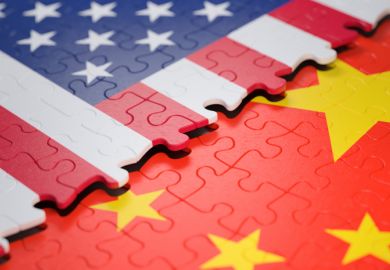The Canadian government’s move to toughen restrictions on research activities involving China is getting a cautious reception from the nation’s universities, which are asking for details on costs and other implications.
The Trudeau administration, mirroring actions taken in the US during the Trump administration, has ordered the government’s main research funding agencies to block money for projects involving foreign nationals with possible security risks.
While the official announcement did not name China, the government issued the order shortly after its innovation minister, François-Philippe Champagne, chastised Canadian universities for working with scientists affiliated with the Chinese military.
Mr Champagne was responding to a report in the The Globe and Mail about 50 Canadian universities conducting research with the Chinese military since 2005, in areas that include quantum cryptography, photonics and space science. The report also cited data showing that academics at 10 leading Canadian universities jointly published more than 240 papers with China’s National University of Defence Technology in the past five years.
The Trudeau administration’s response forbids government funding at Canadian universities “if any of the researchers working on the project are affiliated with a university, research institute or laboratory connected to military, national defence or state security entities of foreign state actors that pose a risk to our national security”.
Universities Canada, the nation’s main higher education lobby group, said in response to the order that it takes national security concerns seriously and was “currently reviewing” its implications. The nation’s universities “have been working diligently” for several years with Canada’s national security agencies to develop strong research security standards, Universities Canada told Times Higher Education.
That effort has largely been led on the academic side by Canada’s U15 grouping of the nation’s 15 largest research universities. That produced new guidelines in 2021 that urged federal science funding agencies to incorporate considerations of potential security risks in their grant decisions.
The new ban explicitly covers the operations of the Canada Foundation for Innovation and the three federal research granting councils – the Social Sciences and Humanities Research Council of Canada, the Natural Sciences and Engineering Research Council of Canada, and the Canadian Institutes of Health Research.
The prohibition follows years of high-stakes battles in the US over university relationships with China, including a campaign during the Trump administration to arrest academic scientists suspected of having undeclared ties to partners or labs in China. The Biden administration declared a formal end to that approach, although it did not end all prosecutions arising from it, and has made clear its own deep concerns about the threat of Chinese scientific espionage aimed at universities. As in the US, the Canadian government is facing calls from its conservative opposition to impose even tougher restrictions.
The Trudeau administration’s move also comes as the US and Canadian militaries coordinated recently on shooting down an apparent surveillance balloon launched from China, heightening public attention in both countries to the idea of a Chinese threat.
As in the US, Canadian universities and their researchers have been asking their government to be extremely cautious about blocking scientific exchanges with China, fearing that a sharp cut-off in collaboration could produce more harm than benefit.
Last year the Canadian government began allocating C$25 million (£15 million) a year to help universities cover the costs of conducting security-related investigations. Universities Canada suggested even more will be needed now. “Providing increased resources to universities to support these enhanced measures will be critical,” the 97-member grouping of universities said in its response.
Register to continue
Why register?
- Registration is free and only takes a moment
- Once registered, you can read 3 articles a month
- Sign up for our newsletter
Subscribe
Or subscribe for unlimited access to:
- Unlimited access to news, views, insights & reviews
- Digital editions
- Digital access to THE’s university and college rankings analysis
Already registered or a current subscriber?








